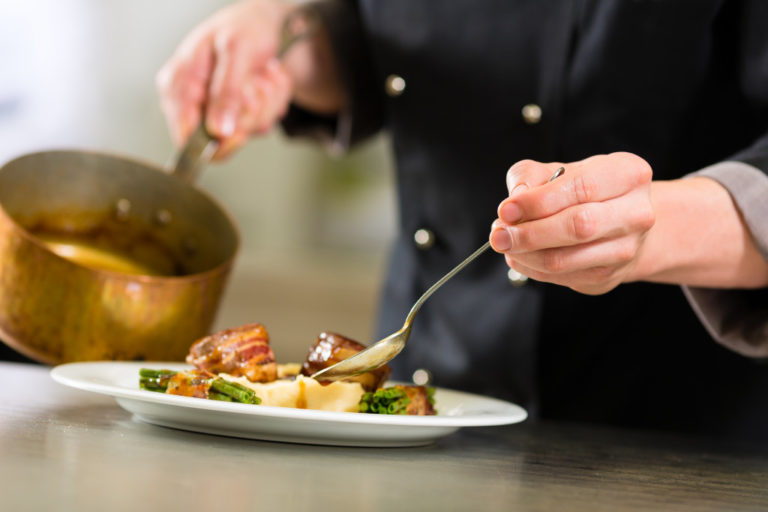People like eating food and trying new cuisines that delight their tastes. Food enthusiasts frequently visit different food outlets and restaurants to fulfill their need to experience new flavors and culinary dishes. Fine Dining Restaurants provide superb cuisine with outstanding service for true food enthusiasts who like to savor their food with style. In a clear sense, Fining Dining refers to the high grade of service and cuisine given by a restaurant that strives for perfection. If you’re still wondering what characteristics make the best fine dining restaurant, here’s a guide to help.
1. Has Superb Servers
You can expect staff to be at their finest, whatever the restaurant’s style. A competent server is well-versed in the restaurant’s food and drinks, from the most recent wines to inventive specialty drinks. Servers frequently use emotional signals to connect with the guests. Thus, you can expect to hear practical jokes and are see them around when you need assistance. Fine dining necessitates waitstaff with expertise and understanding that extends farther than the menu to the business as a whole.
2. Uses Prix Fixe Menus
A prix fixe menu, often known as a set menu, can vary from two to ten dishes and is updated daily or weekly. There are no à la carte selections, although you will usually be allowed to make minimal adjustments if you have nutritional restrictions. Thus with a smaller changing menu, the restaurant can purchase local, seasonal items at their height of freshness. Typically, the chef or sous chef buys these goods, considering the season and using their imagination while creating dishes. If you only want to taste their signature cuisine, there may be a supplemental menu for ordering them in some popular restaurants.
3. Has Fine Tables If Not Fine Tablecloths
White tablecloths are used to be the trademark of any good dining restaurant before. Restaurant owners or managers know that using tablecloths requires a lot of upkeep. You can hire an upholstery cleaning company to clean stained tablecloths, curtains, upholstered furniture, and carpets. For many restaurant owners and managers, tablecloths are no longer appealing. Thus, they now invest more in tables that become an essential element of the décor in the restaurant.
4. Serves Great Food
Whatever restaurant that serves terrible meals is destined for failure. What distinguishes the best fine dining business is its cuisine and how it suits its clients. The fine-dining restaurant’s menu is distinctive and usually is minimal in quantity. You may expect the meal that will be brought to you to be smaller in proportion but is prepared and plated with perfection and that the flavor will outperform any other meal selection. A fine dining restaurant can provide you with visually beautiful and enticing food, as well as the finest-in-class taste.

5. Top-Selection Wines and Spirits
Most fine dining restaurants earn minimal revenues on food yet sometimes have greater than 80% profit on beverage sales. Wine selections at some high-end restaurants are extensive. For instance, wine menus can go from a $15 Sauvignon blanc to a $15,000 rare Burgundy. Thus, in fine dining restaurants, you will notice a well-trained bartender and at least one wine expert who will provide you with knowledge on the wines and their best meal pairings.
6. Outstanding Ambience
The ambiance is one aspect in which fine dining restaurants succeed. A good ambiance is essential for every outstanding fine dining restaurant. A diner pays for an experience, which is inadequate if the ambiance is dull and unpleasant. The restaurant’s setting elevates it to the level of gourmet dining. The ornamentation, music in the background, furnishings, and dinnerware are all utilized to create the mood and experience it provides to the guest. And of course, what better way to go with the restaurant’s ambiance but to dress appropriately as well.
7. Reservations are required.
Reservations help restaurants properly position groups so that the kitchen staff and servers are not swamped during busy hours. Some fine dining establishments provide seatings in place of individual bookings. Fancier restaurants, usually found in major cities, or those with a cuisine that is simple to produce, may not require reservations at all. Not demanding reservations often draws even more guests, as diners line up around the block for fear of not securing a table.
Conclusion:
The exquisite dining experience now is considerably different from the elegant dining areas that were famous in the past. The focus is now on healthy, local produce cooked in innovative techniques and served in an environment, unlike any other diner. Even though the style and service change, fine dining will always remain a choice for restaurant patrons. The impression in fine dining, like good art, is personal.

